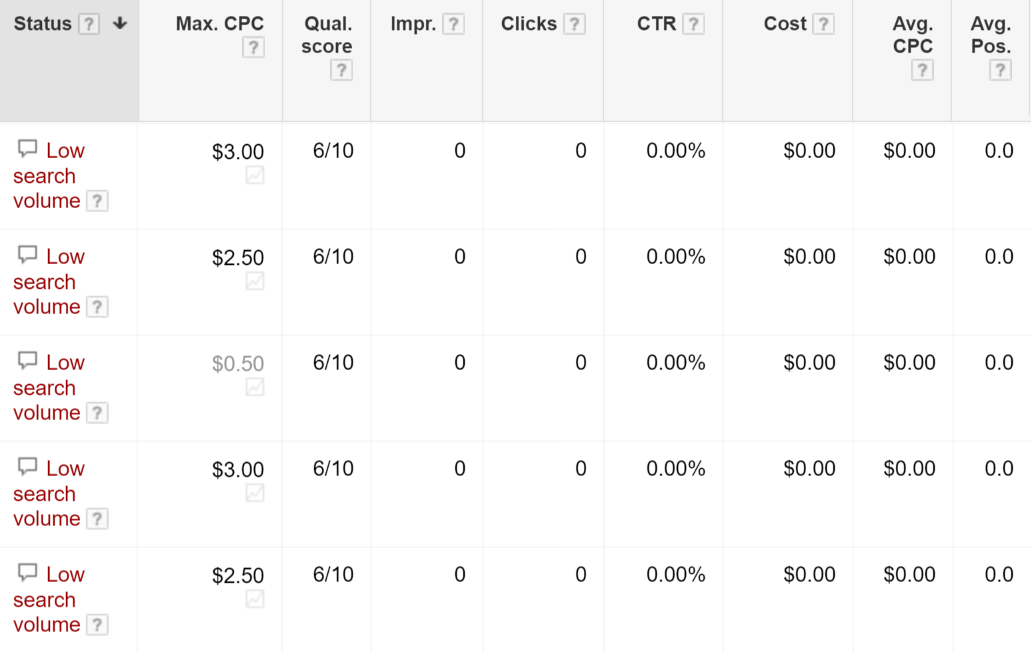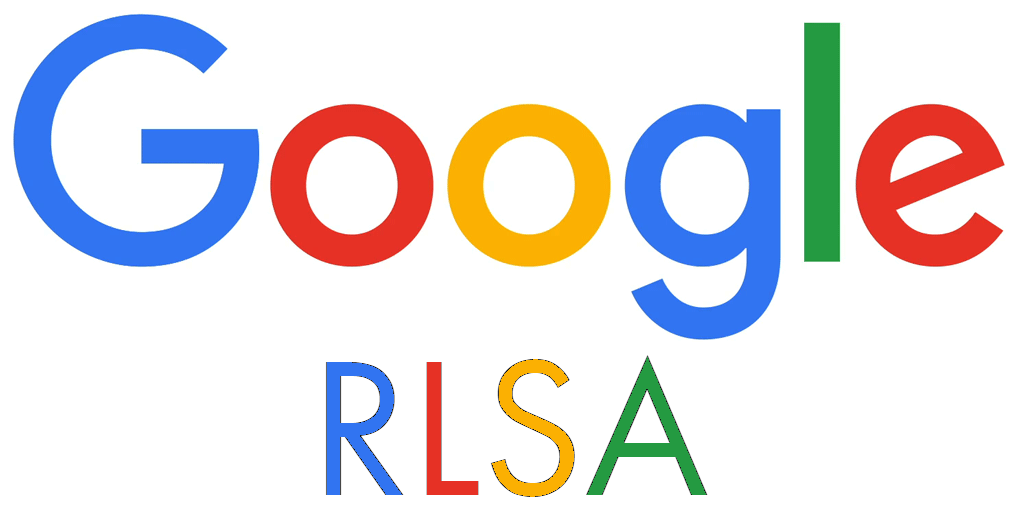When It’s Okay to Use Pure, Broad Match
Broad Match. The match type that strikes fear in the hearts of any experienced, PPC marketer. We’ve all seen accounts hurting themselves by using nothing but broad match keywords. While I admit to jumping on the broad match hate-train every once in a while, I also acknowledge that it isn’t bad in all cases. There are certain times when broad match is necessary or down-right effective. Let me show you when you should use broad match keywords in your PPC campaigns.
Niche or Low Volume Accounts
Does the current view in your Keywords tab look like this?

Then you’re probably not getting a lot of traffic. If your products and services are meant for a very specific audience or are not well known to the public, there might not be a lot of search traffic for what you’re targeting. My first recommendation, to build awareness, would be to run social media and display advertising to get the message out there. However if you want to try and capture search too, then try running a broad match campaign.
Giving Google more leeway to connect to more search terms could lead to the discovery of which search terms your target audience is actually using. Create a broad match campaign with a smaller budget and monitor performance very closely upon launch. You just might find some gems to kick start other campaigns which already have search volume.
RLSA Campaigns
Remarketing Lists for Search Ads have been around for a while. It allows PPC advertisers to show different ads and landing pages to searchers who previously visited your site. If you’re one of the people who are afraid to use pure, broad match keywords then RLSA is perfect to try dipping your toes in the water.

If someone visits my site, I already know they are familiar with my brand. This previous visitor is also most likely familiar with the products and services I am offering. If my initial targeting was correct, that person is a qualified user in my books. In display remarketing, we don’t know what exact sites a user is going to visit after they leave my site. In search remarketing, we also don’t know what a user is going to search for the second time around. Using broad match in RLSA campaigns allows you capture more of your target audience you might be missing out on by using specific match types.
If you are reaching the correct target audience, they’ll most likely convert at a higher rate than your other search campaigns. Your broad match RLSAs will also give you a new list of converting search queries you’ll be able to add to your other match type campaigns. You’ll then be able to better target new users with relevant ad copy and landing pages all from the work you did with broad RLSA campaigns.
Run Out of Keyword Ideas
I had a client this year who wanted to expand upon his top-selling, and most profitable product line. Together we reviewed the search query reports to confirm all the best searches were already being targeted as keywords. We also used keyword tools like AdWords Keyword Planner, Google Autocomplete, Ubersuggest, etc. to find new keyword variations, but everything we added had low search volume. We were stuck until I mentioned testing out a pure, broad match campaign.

Before launching we played it smart. We already had a list of negative keywords built over the years to be implemented right away. We blocked out the other match types of the same target keywords to not ruin the great performance we were getting out of those campaigns already. Last, even though the client has a good budget, we started the campaign at only $5.00 a day just to be safe and not risk wasting a lot of money. After a short amount of time the campaign was succeeding so we kept increasing the budget until we hit full impression share. What were the results? Within two months this new, broad campaign grew to be the source of 15% of the entire account’s revenue before growing to more. (Yes that’s right. Account. Not product line). You never know how well broad match can be unless you carefully plan and test it out.
Final Point
Broad match is easy to hate because we’ve all most likely have been burned by it at some point in our PPC careers. However, there is a time and place for everything and broad match is no exception. If you’re not getting the traffic you want or are stuck trying to grow your current accounts then give broad match a try.
Just like any other campaign you launch, come up with a strategy based on data. Be smart about the implementation. Proactively research negatives before launching. Keep your initial CPCs and daily budgets lower at first to avoid wasting money. Maybe only launch to your best performing geo locations first before expanding. Do the research and test some campaigns first before ruling out broad match completely. You don’t know what opportunities you could be missing.